News
KUBS News
"Exploring the Future of AI and Consumer Behavior Analysis"
— 2025 International Symposium of Marketing Successfully Concludes
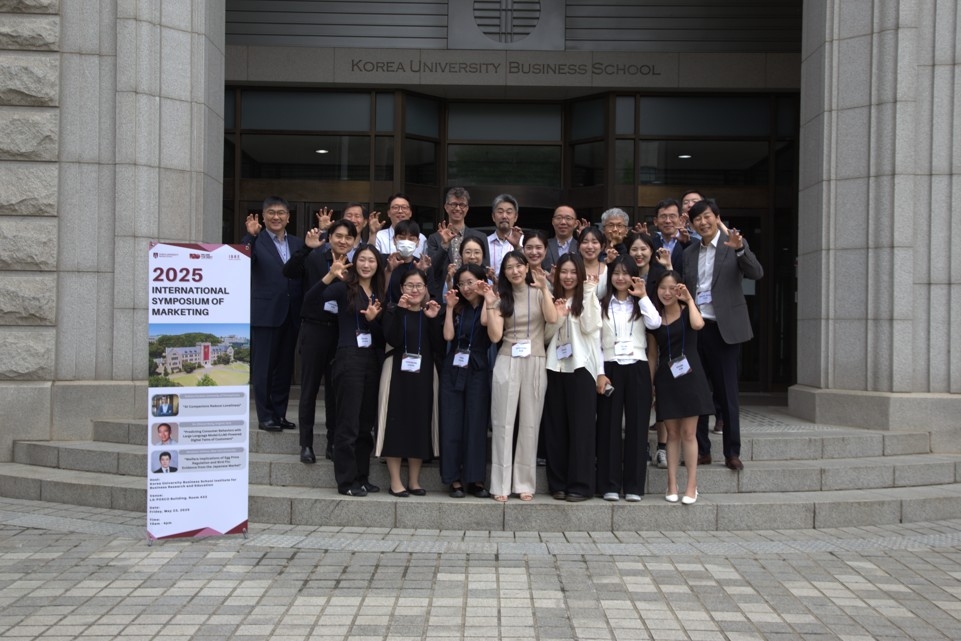
On Friday, May 23, the Institute for Business Research and Education (IBRE) at Korea University Business School hosted the 2025 International Symposium of Marketing in Room 432 of the LG-POSCO Hall. Held in celebration of the university’s 120th anniversary, the symposium convened leading scholars from around the world to explore the convergence of artificial intelligence (AI) technologies and consumer behavior analysis.
Held under the theme “The Intersection of AI and Consumer Behavior Analysis,” the symposium moved beyond the mere adoption of technology to explore the multifaceted impacts of AI on human emotions, well-being, and market behavior. The event attracted significant interest from both academia and industry, underscoring AI’s potential to redefine the paradigms of marketing.
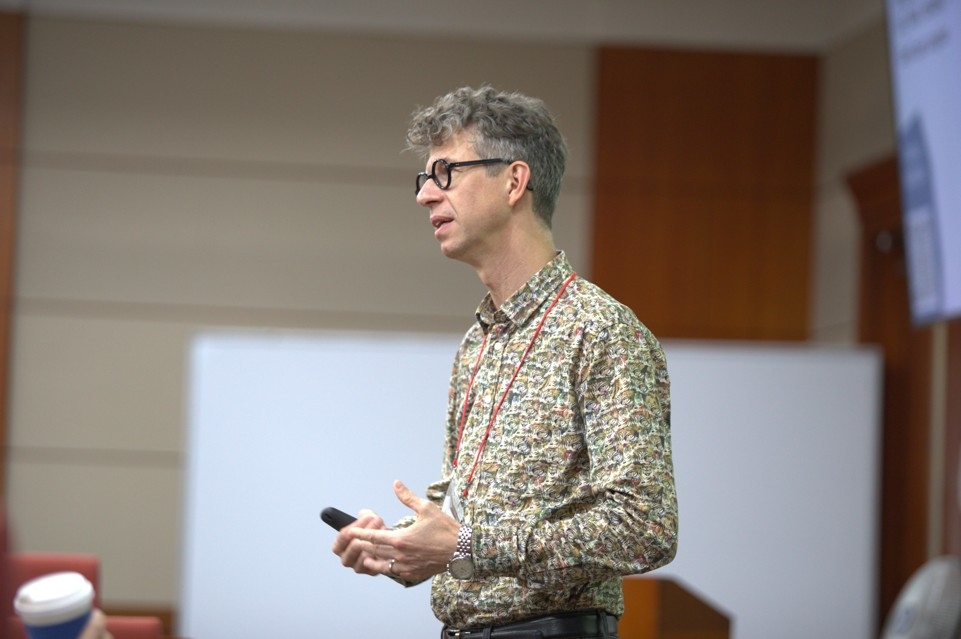
The first session featured Professor Stefano Puntoni of the Wharton School at the University of Pennsylvania, who presented on the topic “AI Companions Reduce Loneliness.” Professor Puntoni offered an in-depth analysis of how AI-based chatbots and virtual companions affect the emotional connection of modern consumers. His findings revealed that AI interactions can alleviate loneliness to a degree comparable to human interaction and yield greater emotional benefits than activities such as watching YouTube. Notably, the sense of “being listened to” significantly enhanced the AI’s effectiveness in reducing loneliness, underscoring the emerging potential of emotional bonding between consumers and AI as a new frontier in technology.
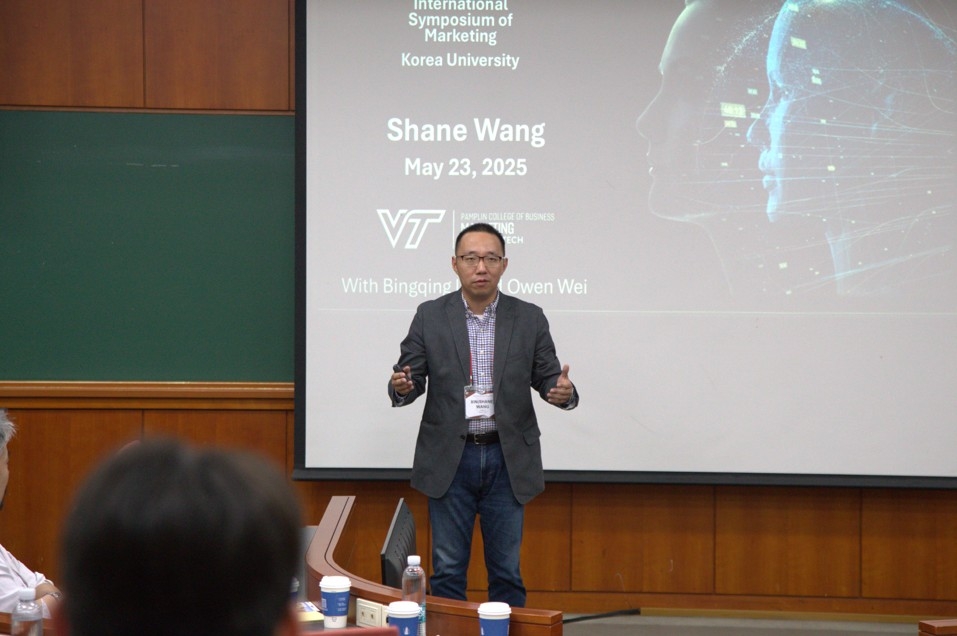
In the afternoon session, Professor Xin (Shane) Wang of the Pamplin College of Business at Virginia Tech delivered a presentation titled “Predicting Consumer Behaviors with Large Language Model (LLM)-Powered Digital Twins of Customers.” Professor Wang introduced a framework that leverages LLM-based digital twins of customers (DToC) to accurately predict consumer behavior. These digital twins are connected to real-time data and simulate consumers’ thought processes, emotions, and purchasing decisions—allowing marketers to forecast and optimize outcomes without direct consumer engagement. Unlike conventional prompt engineering approaches, this framework incorporates fine-tuning to improve contextual understanding and real-time responsiveness. As a result, it is gaining attention as a next-generation marketing tool that offers both high predictive accuracy and practical applicability.
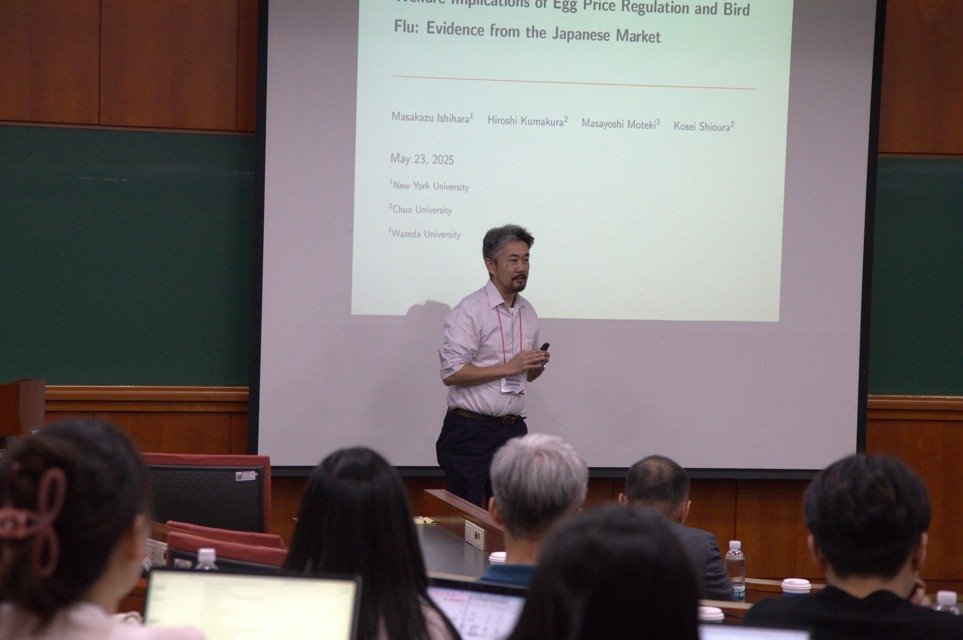
The final session was led by Professor Masakazu Ishihara of New York University’s Stern School of Business, who presented on “Welfare Implications of Egg Price Regulation and Bird Flu: Evidence from the Japanese Market.” Professor Ishihara conducted a quantitative analysis of the relationship between market regulation and welfare outcomes, focusing on the bird flu outbreak and the Japanese government's egg price subsidy policy. His findings indicated that while the subsidy helped artificially stabilize prices, it also increased the financial burden on consumers. The study further suggested that alternative regulatory approaches without tax burdens could potentially lead to greater welfare gains.
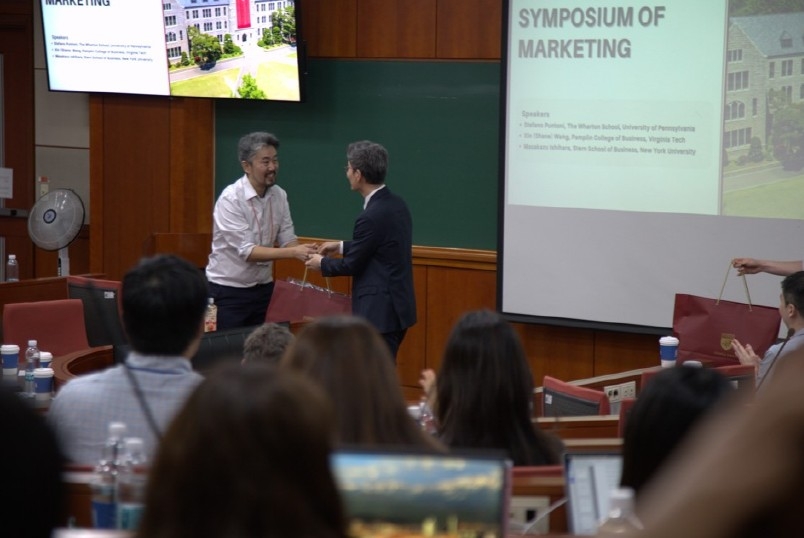
The event concluded with closing remarks from Dean Eonsoo Kim of Korea University Business School. Dean Kim remarked, “This symposium provided a valuable opportunity for in-depth discussion on the future direction of marketing in the age of artificial intelligence. In celebration of our 120th anniversary, it was all the more meaningful as it allowed us to reaffirm the Business School’s vision for future-oriented research and education.” He presented commemorative gifts to the speakers in appreciation of their contributions, and the symposium came to a successful close with a group photo.
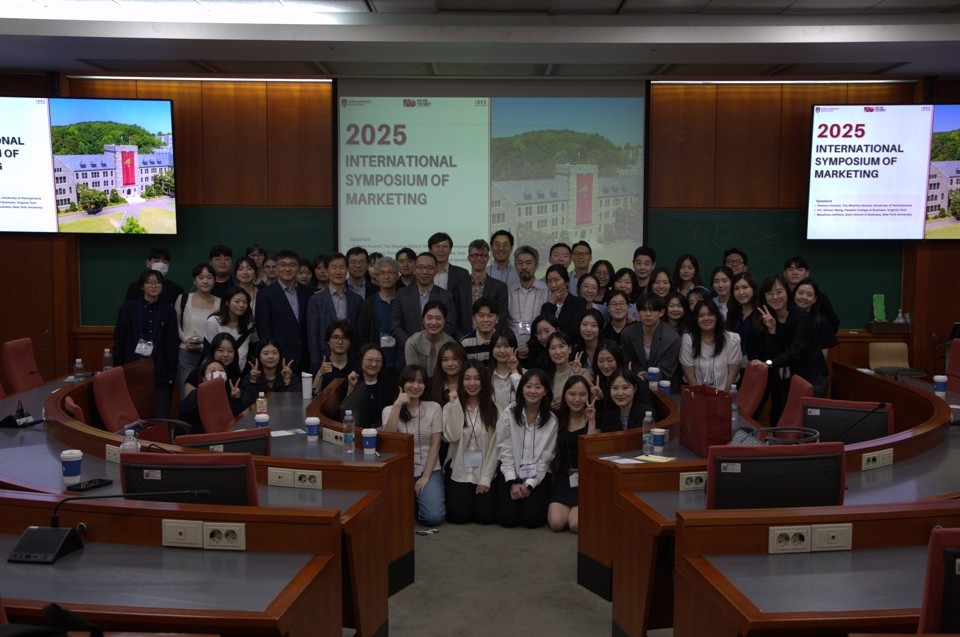
The symposium concluded successfully, presenting new directions for understanding consumer behavior while fostering in-depth discussions on how AI technologies can advance human-centric marketing. A representative from the Institute for Business Research and Education (IBRE) remarked, “Interdisciplinary dialogue that re-examines the core of marketing-in the age of AI will remain a key focus. We will continue to create platforms that connect academia and industry.”
Meanwhile, Korea University Business School has actively fostered academic engagement across a range of disciplines. In 2005, to commemorate its centennial, the school hosted a series of international symposiums organized by academic fields. Among them, the marketing discipline has continued to hold annual international symposiums, consistently sharing cutting-edge research and strengthening ties with industry through global academic exchange. This long-standing tradition has served as a key foundation for KUBS’s emergence as a research-driven institution. As a result, in the recently released 2025 QS World University Rankings by Subject, Korea University Business School ranked 28th globally and 1st in Korea in the field of marketing. This year’s symposium continues that legacy—providing a forward-looking platform to explore the future of marketing in the AI era, while meaningfully bridging academia and industry.


